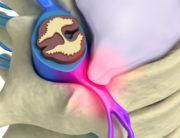The treatment for whiplash from a car accident depends on the severity of the injury and other factors. Whiplash injuries can range from mild to moderate to severe. If you have other injuries or underlying medical conditions, your neck (whiplash) injury might not respond well to the standard treatments.
Treatments for Mild to Moderate Whiplash
Doctors tend to prescribe conservative, non-invasive treatment for whiplash from a car accident. These treatment options range for mild to moderate whiplash injuries. Depending on your circumstances, your healthcare provider might order one or more of these standard treatments:
- Get a little more rest than usual, but only during the first 24 hours. People tend to recuperate better if they are active, within reason.
- Applying hot or cold packs to the neck for 15 minutes several times a day can relieve discomfort.
- Non-prescription anti-inflammatory medications, like Tylenol (acetaminophen) or Advil (ibuprofen), can provide relief for most whiplash injuries.
- If you have multiple injuries or a severe whiplash, your doctor might treat you with a prescription painkiller or antidepressant drug.
- Muscle relaxants can help to relax tight muscles. In cases of extreme pain, your healthcare provider might inject you with a local numbing drug, similar to a dentist numbing your mouth for a dental procedure.
- Physical therapy is one of the mainstays of treatment for whiplash injuries. Your doctor might offer you information on stretching and movement exercises that you can do on your own, or your physician might send you to a physical therapist.
Sometimes people go to a chiropractor, acupuncturist, or massage therapist to treat the discomfort of whiplash pain. The Mayo Clinic states that there is not much research about how well these alternative treatments will work.
People used to routinely wear a cervical foam collar around their necks after a whiplash injury. The Mayo Clinic warns that wearing these devices for long periods can interfere with your recovery because immobilizing your neck can cause muscle weakness in your neck.
Factors That Can Cause Continuing Neck Pain
If you have extreme neck pain or limited range of motion, your doctor might explore whether you have additional problems in your neck, like dislocations, arthritis, or fractures. In these situations, you might have to undergo more intensive treatment for whiplash from a car accident.
How Your Doctor Can Diagnose the Severity of Your Whiplash Injury
Your doctor will examine you to determine how severe your neck injury is and develop a treatment plan. Your physician will have you try to move and complete some tasks that will show the evaluator:
- The range of movement you have in your neck and shoulders
- How much tenderness you have in your back, shoulders, and neck
- If a particular degree of motion is painful or worsens your existing pain
- How much strength and sensation you have in your arms
- The condition of your reflexes
Sometimes doctors order imaging studies to get a better picture of what is going on inside your neck and shoulders. You can have a whiplash without any abnormalities showing up on an x-ray, computerized tomography (CT) scan, or magnetic resonance imaging test (MRI). On some people, these imaging studies reveal spinal cord, ligament, bone, or disk damage.
At the Montero Law Center, it is our passion and calling to help people who get hurt by the careless acts of others. Call us today at (954) 767-6500 for a free consultation.
 English
English  Español
Español 





